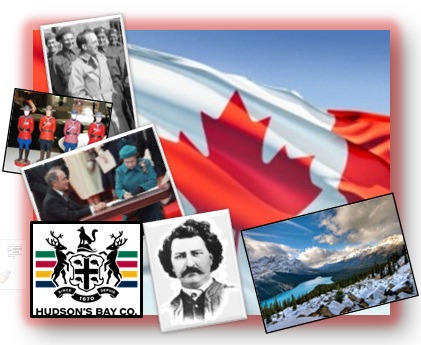U4L4 Visions of National Identity
| Site: | MoodleHUB.ca 🍁 |
| Course: | Social 20-1 RVS |
| Book: | U4L4 Visions of National Identity |
| Printed by: | Guest user |
| Date: | Friday, 26 December 2025, 9:35 AM |
Description
U4L4
Introduction
Key Issue
To what extent should I embrace national identity?
National identity is a collective or group identity that is based on linguistic, ethnic, cultural, religious, spiritual or political understandings of nation. It often combines two or more of these understandings. The lesson will explore the extent to which national unity should be promoted. Consider the following questions while working through this lesson:
- What are some visions of nation?
- What are some possible visions of Canada?
- What is your vision of national identity?
 |
|
Lesson
![]() RESOURCES
RESOURCES
Read and refer to Chapter Sixteen your resource for completing this lesson's assignment.
![]() LESSON
LESSON
A pluralistic society reflects an inclusive approach that is characterized by respect for diversity. It assumes that diversity is beneficial and that cultural, religious, spiritual, ideological, gender, linguistic, environmental, and philosophic groups should enjoy autonomy.
|
As the 20th century unfolded, and Canada welcomed more and more immigrants
|
|
1867 - Thomas D'Arcy McGee Irish Nationalist, Catholic spokesman, journalist and Father of Confederation stated the following:
|
|
A pluralistic society reflects an inclusive approach that is characterized by respect for diversity. It assumes that diversity is beneficial and that groups with various backgrounds can enjoy autonomy. As Canadians reassess their national identity, some view Canada as a country of many nations. In 1996 the Royal Commission on Aboriginal Peoples reported that Canada is a nation of nations. It said that Aboriginal governments are one of three orders of government in Canada - federal, provincial/territorial and Aboriginal. |
 |
According to political philosopher, Will Kymlicka, the idea of Canada as a country of many nations requires Canadians to embrace the concept of asymmetrical federalism. The term asymmetrical federalism refers to a federal system in which the division of powers (and specific arrangements pertaining to them) are not the same from province to province. Asymmetrical federalism would allow, for example, a federal union of some sort to exist, but separate and different provisions relating to specific jurisdicitons might be in place for one or some provinces. |
Assignment 2021
Complete the following crossword. (click on the number to expose the clue)
Take a screen capture of your completed puzzle. Label this assignment SS20U4L4.surname and submit this assignment using the Assignment Folder for U4L4 National Identity.
Final Exam details - Because we no longer have a 2 part final exam, please take your time with the one written part you have. You can still ask questions, despite the "final exam" title that this final written assignment is being given, so ask!
Evaluation and Conclusion
Evaluation
Completion check.
Conclusion
This lesson has presented you with a number of perspectives on Canadian identity and some views of a possible Canadian future. These diverse ideas should help you shape your own vision of Canada for the future.